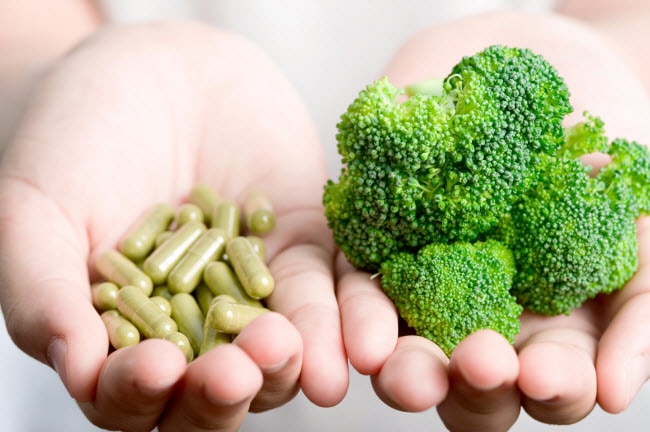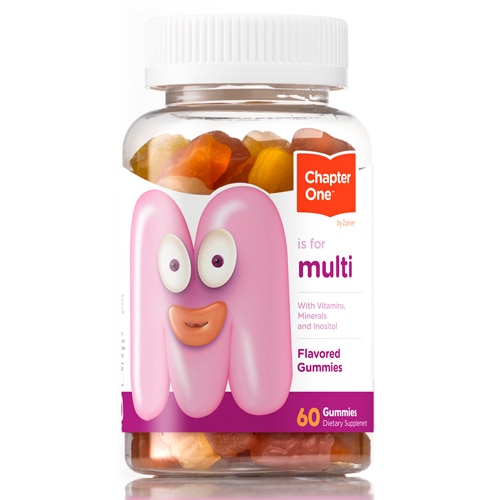Spoiler alert: If you eat lots of grains, fruits and veggies, you should be getting the vitamins and minerals you need. But you'll do even better if you home in on several distinctions among micronutrients, which despite their diminutive label are vital to helping your body grow, repair itself and prevent disease.

First things first: You're generally best off getting micronutrients from fresh food, nutrition and health experts say. Still, there can be worthwhile reasons to take vitamins or supplements. To name a few: Iron supplements help people with anemia, vitamin D supplements help people who don't get enough sun sans SPF, and vitamin B-12 supplements can be critical to vegans and vegetarians (the micronutrient is in animal products).
How much you need of each micronutrient depends on your age and gender. The National Academies of Sciences, Engineering and Medicine recommends minimum intake levels. It also recommends maximum intake levels—more is not always better. For example, too much vitamin A can be bad for bones, and too much vitamin E can interfere with how vitamin K works in your body.
Let's unpack the unique qualities of micronutrients, in order to best understand how to consume them.
What are micronutrients?
Types of vitamins
Vitamins come from plants and animals, though your body can make vitamin D through your skin's exposure to sunlight (10 to 15 minutes a few days a week, according to Harvard Medical School). There are two types of vitamins: water-soluble and fat-soluble.
Water-soluble vitamins
Your body needs constant replenishment because your system expels what it can't use at any given time. Some good sources:
B-1: ham, soymilk, watermelon, acorn squash
B-2: milk, yogurt, cheese, whole and enriched grains and cereals
B-3: meat, poultry, fish, fortified and whole grains, mushrooms, potatoes
B-5: chicken, whole grains, broccoli, avocados, mushrooms
B-6: meat, fish, poultry, legumes, tofu and other soy products, bananas
B-7: whole grains, eggs, soybeans, fish
B-9: fortified grains and cereals, asparagus, spinach, broccoli, black-eyed peas, chickpeas
B-12: eggs, meat, poultry, fish, milk, cheese
C: citrus fruit, potatoes, broccoli, bell peppers, spinach, strawberries, tomatoes, Brussels sprouts
Keep in mind: Heat and light destroy vitamin C, so eat foods that have it raw if you're trying to maximize. That said, given vitamin C is abundant in foods you probably won't be lacking for it. Heat also destroys some B vitamins, making a light steam best as far as cooking goes. Use water from cooking veggies; its got vitamins in it.
Fat-soluble vitamins
Your body stores them, so you use them up over time. Some good sources:
Vitamin A: beef, liver, eggs, shrimp, fish, sweet potatoes, carrots, pumpkins, spinach, mangoes
Vitamin D: fortified milk and cereals, fatty fish
Vitamin E: avocados, vegetables oils, leafy green vegetables, sunflower seeds, wheat germ
Vitamin K: cabbage, eggs, milk, spinach, broccoli, kale
Keep in mind: Your body converts beta-carotene, which gives orange fruits and veggies their color, into vitamin A. It does this best when accompanied by a little fat. And cooking carrots in particular helps you get more vitamin A because it loosens the thick fibers that otherwise trap beta-carotene.
Minerals
Minerals come mainly from rocks, soil and water. You get them from water, plants and animals that eat plants. There are two types of minerals: major and trace.
Major minerals
Your body needs a higher quantity relative to trace minerals. Some go-tos:
Calcium: yogurt, cheese, milk, salmon, leafy green vegetables such as kale and collard greens, sesame seeds
Magnesium: spinach, broccoli, brown rice, legumes, seeds, whole-wheat bread
Potassium: meat, milk, most fruits and vegetables, grains, legumes
Sodium: salt, soy sauce, vegetables
Trace minerals
Your body needs a lesser quantity relative to major minerals. Some go-tos:
Chromium: meat, poultry, fish, nuts, cheese
Copper: shellfish, nuts, seeds, whole-grain products, beans, prunes
Fluoride: fish, teas
Iodine: iodized salt, seafood
Iron: red meat, poultry, eggs, fruits, green vegetables, fortified bread
Manganese: nuts, legumes, whole grains, tea
Selenium: seafood, seeds, nuts (especially Brazil nuts)
Zinc: meat, shellfish, legumes, whole grains, wheat germ
Keep in mind: Heat doesn't much harm minerals, so you'll get them whether cooking or not.



